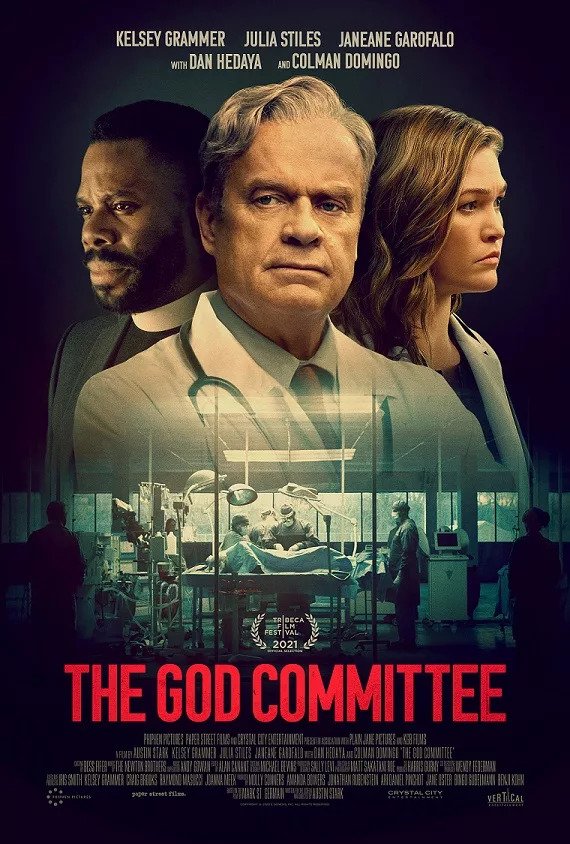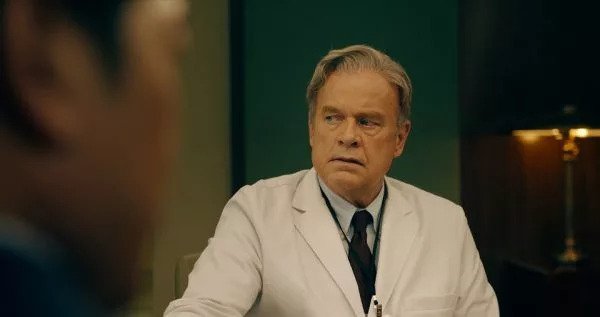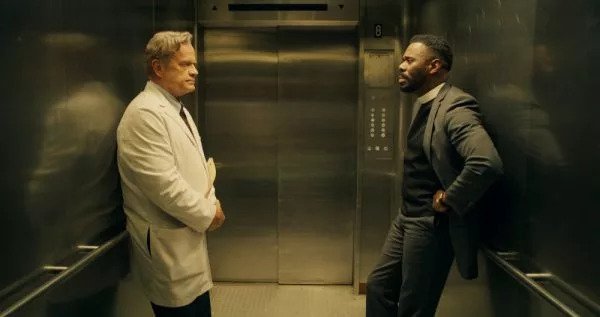
Directed by Austin Stark.
Starring Julia Stiles, Janeane Garofalo, Kelsey Grammer, Dan Hedaya, Colman Domingo, Caroline Lagerfelt, Elizabeth Masucci and Patricia Mauceri.
SYNOPSIS:
In the next hour The Lenox Hill committee must decide who deserves a heart transplant. Doctor Valerie Gilroy (Janeane Garofalo), Doctor Jordan Taylor (Julia Stiles) and Doctor Andre Boxer (Kelsey Grammer) are amongst them. Seven years later they are left to deal with the repercussions of the choices they made.

For anyone familiar with playwrights David Mamet or Patrick Marber, The God Committee will feel like a homecoming. Heavyweight issues, morally dubious decisions and ethical hot potatoes are rife within the narrative. Writer director Austin Stark has adapted Mark St. Germain’s play into an engaging, if slightly ponderous melodrama. Everyone here has an agenda; everyone has something to lose and there is a lot of grey area.
Kelsey Grammer and Julia Stiles do much of the heavy lifting, as heart surgeons engaged in a clandestine relationship. One on the lauded Lennox Hill committee, another offered an opportunity to join at a crucial moment. Austin Stark uses past and present to show this topic from all sides, allowing audiences to come to their own conclusions.

As Andre Boxer, Kelsey Grammer is stoic, determined and mercilessly pragmatic. For him, everything comes down to science not sentiment. His emotional detachment is pivotal to the disintegration of his personal life and any choices he might make. Meanwhile, Julia Stiles imbues Dr. Jordan Taylor with a fragile optimism which is slowly eroded by the events that follow. A need for corporate sponsorship versus the moral and ethical obligation to make the right choices, offer writer director Austin Stark plenty of opportunity to explore corruption sub-plots.
Janeane Garofalo’s Doctor Valerie Gilroy is the seasoned committee member when the film opens. Potential transplant candidates are offered up individually in the shadow of a ticking clock. Their pros and cons are aired like dirty laundry, while straight to camera contributions go some way to humanising them. Each one seems to be a possibility, whether they are considered a worthwhile choice or not. Flies in the ointment with vested interests include Granger, played by Dan Hedaya, who carries financial and political muscle alongside a deeply personal perspective. Meanwhile, Colman Domingo’s Father Dunbar sits on the fence both morally and ethically; likely to benefit either way.

For all its good intentions The God Committee lacks teeth. Although the performances are good, there is an inherent lack of momentum stemming from its theatrical roots. David Mamet’s Glengarry Glen Ross suffered from something similar, but at least had a cohesive through line. Austin Stark’s adaptation tries to address too many issues whilst trying to appease an intangible audience demographic.
Glengarry Glen Ross and Patrick Marber’s Closer dealt solely with the human condition. Although The God Committee does attempt to dissect the topic, it deviates too often into the woolly world of medical ethics, transplant technology and character indulgence. Andre Bacon’s ailing health feels like a plot device, shoehorned in to make the film more dynamic. This sub-plot is distracting, superfluous and diminishes the impact of anything which comes before.

In the final third The God Committee moves away from its central premise and dilutes down any dramatic impact even more. This had the potential to be the 12 Angry Men of medical ethics, or at least a poor relation to the financial diatribe on greed which is Margin Call. Instead, it is weighed down by sentimentality, mainstream conventions and the film making by committee which demands a happy ending.
The God Committee in selected theatres and On Demand from July 2nd.


